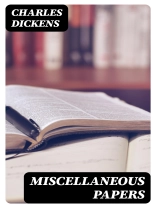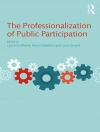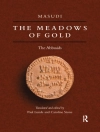In ‘Miscellaneous Papers, ‘ Charles Dickens presents a rich anthology that encapsulates the breadth of his literary prowess and social commentary. This collection spans a range of genres, from essays and sketches to travel writing and short stories, each embedded with Dickens’ signature wit and acute observation of 19th-century British society. The prose is characterized by intricate character development and vibrant descriptions that showcase Dickens’ ability to blend humor with poignant moments, reflecting upon themes such as class disparity, urban life, and human resilience in the face of adversity. These papers, previously unpublished or overlooked, serve as a fascinating companion to his more renowned works, illuminating the evolution of his style and thought. Charles Dickens, one of the most influential literary figures of the Victorian era, was shaped by a tumultuous upbringing characterized by poverty and hardship. His early experiences in a workhouse and his keen perception of social injustices profoundly influenced his writing career, leading him to become a fervent advocate for social reform. The diverse topics encompassed in ‘Miscellaneous Papers’ highlight Dickens’ mission to bring attention to pressing societal issues, showcasing the breadth of his interests and the depth of his human empathy. I wholeheartedly recommend ‘Miscellaneous Papers’ to readers who wish to delve deeper into Dickens’ multifaceted genius. This collection not only enriches the understanding of his oeuvre but also resonates with contemporary readers grappling with similar social questions. It is a testament to Dickens’ enduring relevance and a must-read for anyone interested in the interplay of literature and social justice.
A propos de l’auteur
Charles Dickens (1812-1870) remains one of the most celebrated authors in English literature, renowned for his vivid storytelling and portrayal of Victorian England. Born in Portsmouth, England, Dickens’ early life of financial hardship and work in a factory during his father’s imprisonment for debt shaped much of his worldview and influenced his writing. Emerging as a writer in the 1830s, he quickly gained popularity through his sharp wit and social commentary. Dickens wrote a plethora of novels, including ‘Oliver Twist, ‘ ‘David Copperfield, ‘ and ‘Great Expectations, ‘ which have left an indelible mark on literary history. His works often explored themes of poverty, social injustice, and the human condition, making them as compelling today as they were in the 19th century. ‘Miscellaneous Papers, ‘ while not as well-known as his novels, is a collection that showcases Dickens’ range as a writer, including sketches, essays, and other writings that highlight his keen observation and narrative flair. Dickens was not only a novelist but also a vigorous social campaigner who used his influential pen to advocate for reforms. His literary style, characterized by rich humor, irony, and memorable characters, has been praised for its realism, its moralism, and its narrative energy, which have secured Dickens a permanent place in the canon of English literature (Ackroyd, Peter. ‘Dickens.’ 1990).












